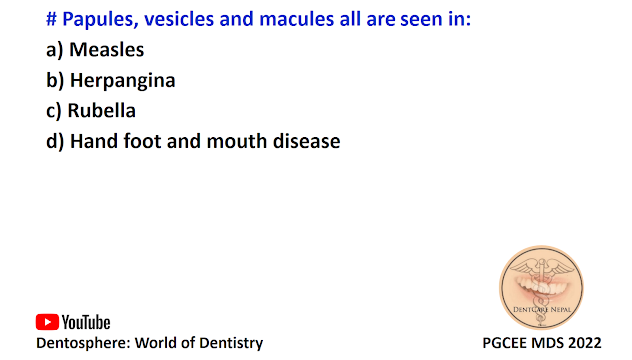# Papules, vesicles and macules all are seen in:
a) Measles
b) Herpangina
c) Rubella
d) Hand foot and mouth disease
The correct answer is D. Hand foot and mouth disease.
Individuals with HFMD present with oral pain, often with accompanying fever and flu‐like symptoms (e.g., malaise, myalgia). As with herpangina, prodrome is usually absent. The oral ulcers resemble herpangina ulcers, but are more numerous. The location of the oral ulcers in HFMD also differs
from herpangina and they are located anterior to the faucial pillars, most commonly on the tongue, labial, and buccal mucosa. The hand lesions are located on the dorsum of the fingers, interdigital spaces, and palms. The foot lesions are typically on the dorsum of the toes, sole, heel, and lateral borders of the foot. In infants, toddlers, and preschool children, lesions may occur on the buttocks. The skin lesions may be macular, maculopapular, or vesicular. The skin vesicles contain a clear or turbid fluid surrounded by a halo of erythema. HFMD caused by enterovirus A71 and a novel coxsackievirus
A6 genotype are associated with more severe disease patterns (Enterovirus 71: CNS disease, heart failure; Coxsackievirus A6: wider distribution, longer duration).
Ref: Burket.







